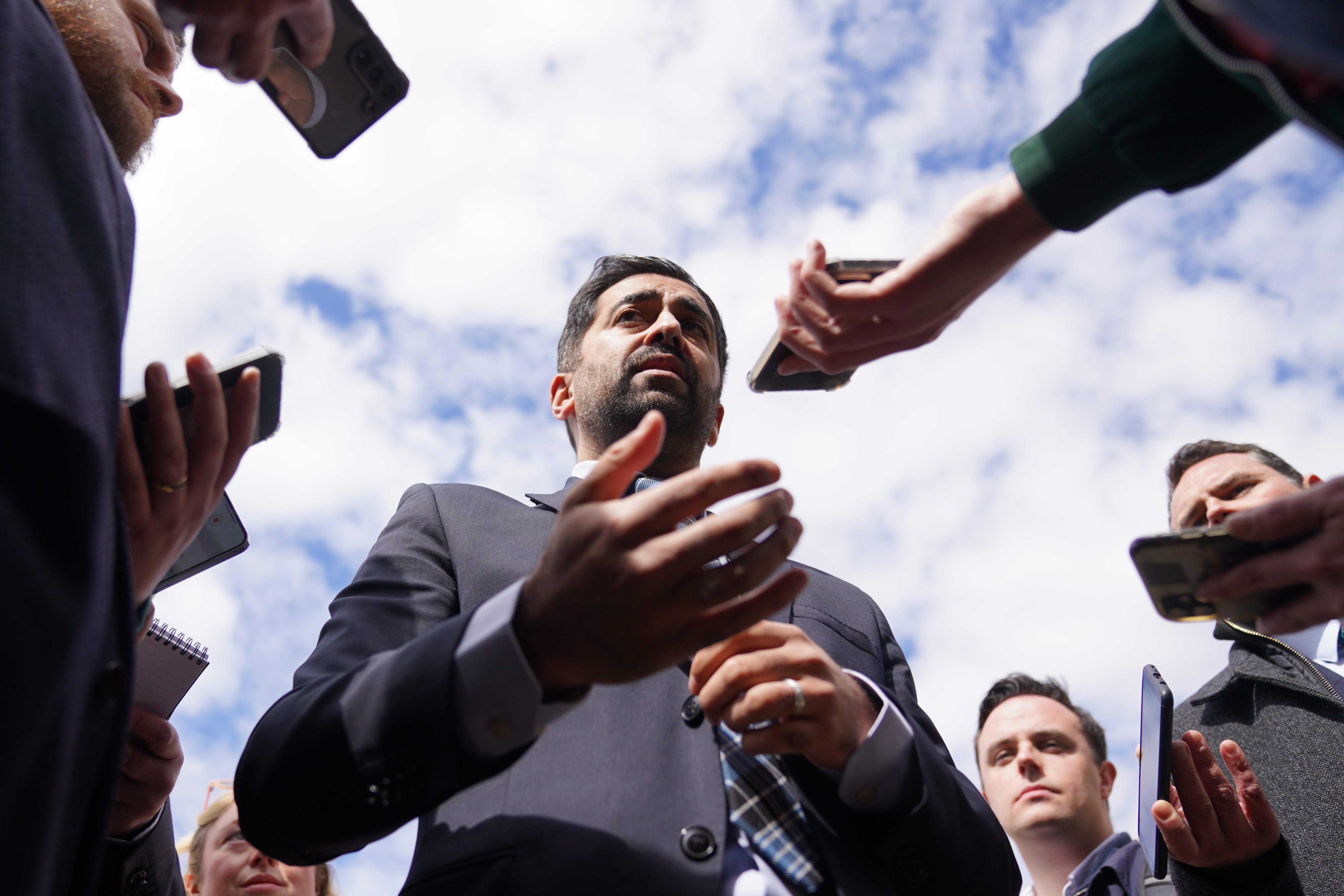What happens next as Humza Yousaf faces no confidence votes at Holyrood?
The make-up of the Scottish Parliament means the First Minister faces a tough fight for his political future.

The collapse of the powersharing deal between the SNP and Scottish Greens has left First Minister Humza Yousaf facing a vote of no confidence at Holyrood.
Another motion of no confidence has been lodged in the Government he leads.
What happens next and – perhaps more importantly – what will the outcome be for Scotland’s embattled leader?
Here, the PA news agency takes a look at some of the key questions.
– What kind of votes will take place?
Two motions have been lodged, one by Scottish Conservative leader Douglas Ross and the other by Scottish Labour leader Anas Sarwar.
Mr Ross’s motion states that Parliament “has no confidence in the First Minister, in light of his failures in government”.
If it passes, Mr Yousaf would not be legally bound to resign but he would be under massive pressure to quit.
Mr Sarwar’s motion states that Parliament “has no confidence in the Scottish Government”.
Unlike Mr Ross’ motion, this would have a direct legal consequence and would compel Mr Yousaf to resign as First Minister.
This would then start a 28-day period where Holyrood chooses a new first minister.
If a new first minister cannot be agreed on, an extraordinary election for the Scottish Parliament can take place.
– How many votes does Humza Yousaf need to win?
He would simply need to secure the support of a majority of MSPs.
If everyone takes part in the vote – and sometimes MSPs might not be able to because of ill health or other reasons – he would need at least 64 of the 129 MSPs to vote for him.
That is because, as Presiding Officer, Alison Johnstone traditionally does not vote.
She would only vote if there is a tie and by convention the Presiding Officer uses their vote to support the status quo – so would back the First Minister.
– How is the vote likely to go?
The SNP has 63 MSPs, leaving Mr Yousaf one short of the minimum tally he needs to reach.
The Scottish Green Party, Mr Yousaf’s former partners in government, have indicated they will support Mr Ross’ motion but have not confirmed which way they would go on Mr Sarwar’s.
Attention has now focused on how Alba Party MSP Ash Regan – who quit the SNP last year – will cast her ballot.
When she defected, Mr Yousaf described the move as “no great loss”, but she could now play a key role in determining his future.
– What happens if Humza Yousaf loses?
While the result of the ballot on Mr Ross’s motion could not compel the First Minister to quit, realistically it would prove almost impossible for him to stay in post if he did not have the confidence of the majority of MSPs.
Under Scottish Parliament rules, if a first minister steps down MSPs have 28 days in which to elect a replacement.
This means that if Mr Yousaf was to quit, the SNP may seek to have a replacement leader installed in the post – assuming they could win enough support to be voted into the post at Holyrood.
– What happens if he wins?
If he wins the vote of no confidence, the First Minister would of course be able to stay on in the post – but if he was to only secure a narrow victory in such a ballot, it could leave his leadership weakened.
– What has he said to the other leaders?
On Friday night, Mr Yousaf wrote to the leaders of all Holyrood’s political parties, inviting them to talks at Bute House on how they can work together now that the SNP are a minority government.
He hoped to find “common ground” while acknowledging that there are “strong feelings” about the upcoming confidence votes.
On Saturday, he told Sky News it would be a “poor choice” for the Greens to back Mr Ross’s motion.
– When will the vote be held?
No date has been set for the vote but it is likely parliament business managers will meet on Tuesday to set a date for the debate and vote on the motion.
The expectation at Holyrood is that a vote could be held at some point next week.
Bookmark popover
Removed from bookmarks